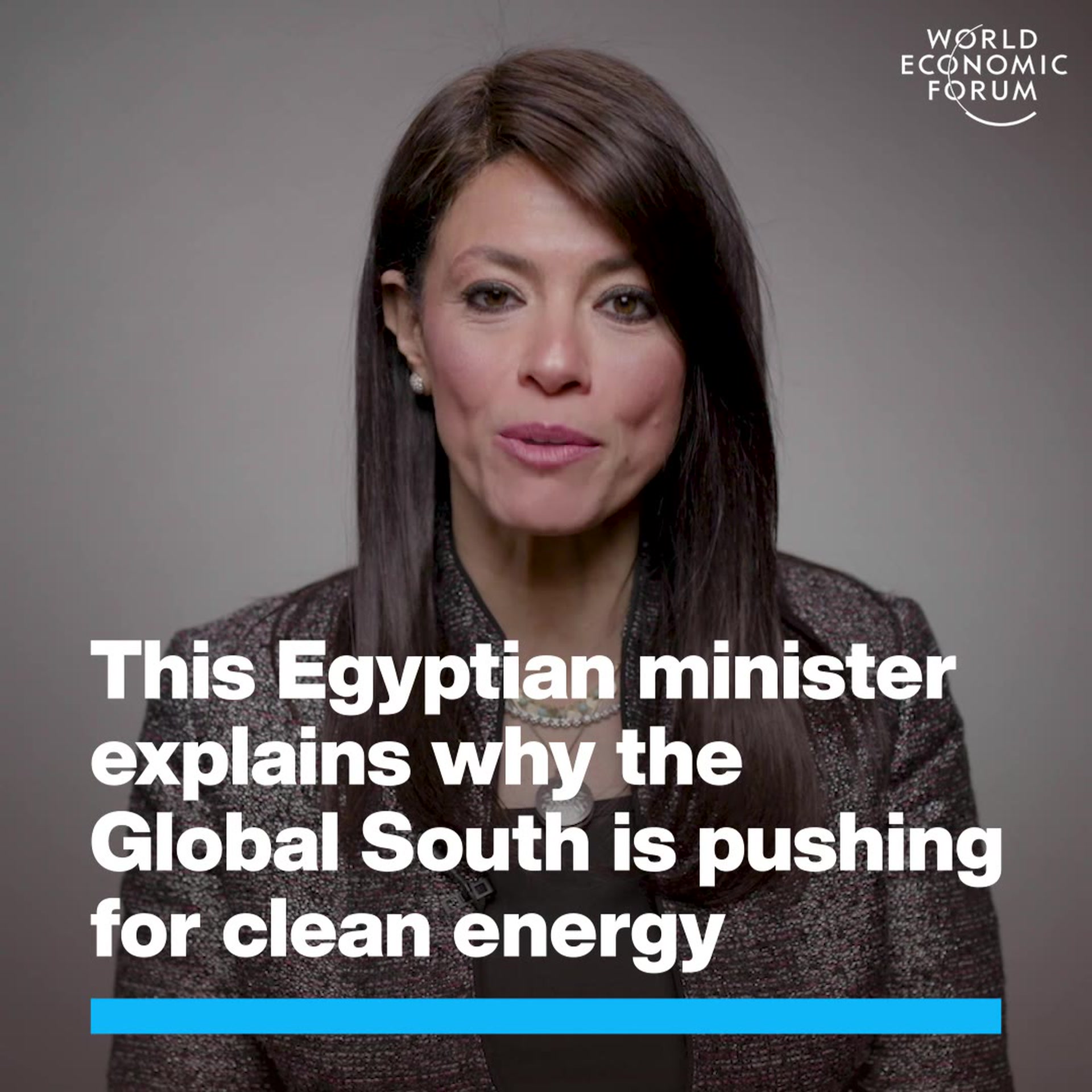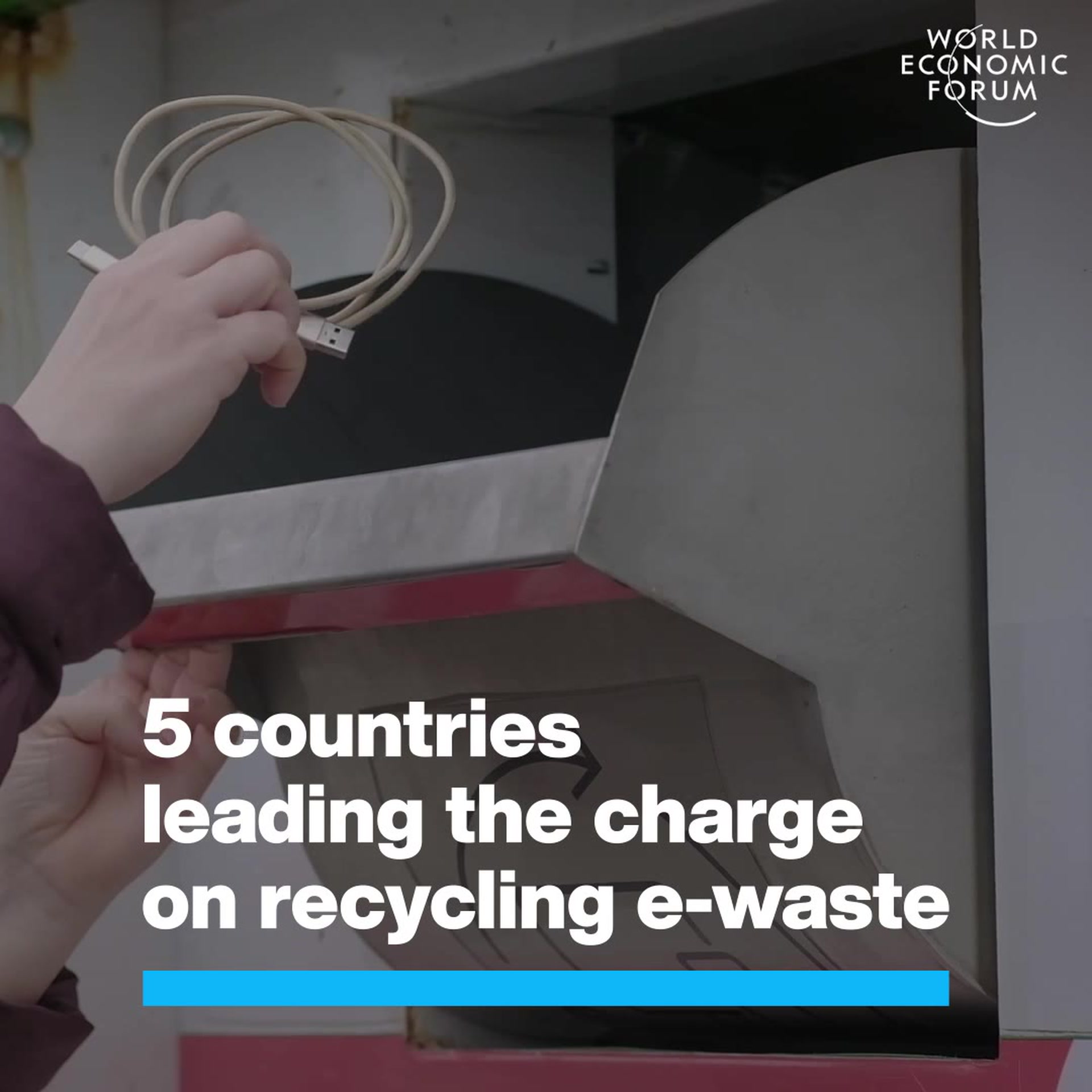These are the top 3 climate risks we face — and what to do about them

In its Global Risk Report 2024, the World Economic Forum has named three separate climate risks among the most pressing challenges facing humanity. Image: Photo by Chris Gallagher on Unsplash
Gill Einhorn
Head, Innovation and Transformation, Centre for Nature and Climate, World Economic Forum
Get involved with our crowdsourced digital platform to deliver impact at scale
Stay up to date:
Climate Crisis
- In its annual Global Risk Report, the World Economic Forum named 3 key climate risks as top global challenges: urgent action is needed to combat them.
- Extreme weather events, critical change to Earth systems and biodiversity loss the top three 10-year risks.
- While the scale of the challenge is historic, the good news is that many of the solutions needed to address these risks already exist — we just need to know where to look.
Nature and climate risks are getting the attention they deserve — that’s a positive first step in addressing some of the greatest challenges that we, as a global community, face. Just this week, scientists announced that temperatures in 2023 reached 1.48°C above preindustrial averages, with the 1.5°C threshold that takes the Earth into an unsafe operating space likely to be breached in the next 12 months.
The World Economic Forum’s Global Risks Report 2024 named three key climate issues as critical challenges facing humanity: Extreme weather events, critical change to Earth systems — which is a new entrant this year — and biodiversity loss and ecosystem collapse.
These climate-related risks sit alongside challenges like disinformation, geo-political competition and inflation as the definitive risks of 2024 and beyond.
What’s the World Economic Forum doing about climate change?
The 3 key climate challenges of our time
All risks in the report are, to a greater or lesser extent, interrelated — but, when it comes to climate risks, their connected and mutually reinforcing nature is abundantly clear. Abrupt and irreversible changes to Earth systems lead to more extreme weather events and risk collapses in ecosystems that are not well adapted to new climates.
For example, scientists estimate that 99% of coral reefs will not survive a 1.5°C world, yet this threshold will be crossed in nearly all IPCC scenarios in the early 2030s. This will lead to a critical change in Earth systems, as the die-off of low-latitude coral reefs is a climate tipping point. Coral reefs offer an effective barrier to extreme weather from coastal storm surges, and so the gravity and extent of extreme weather damage will grow in their absence. This vortex of climate risk factors has significant and cascading consequences. In the case of coral reefs, 25% of all marine life is dependent on coral reefs at some point in their life cycle. This means their collapse fundamentally undermines the underlying structure of marine ecosystems, tourism and global food security.
In Jared Diamond’s Collapse of Civilisation, he outlines a five point framework that explain why humans have destroyed their lives and societies throughout history. Three of the five are environmental: environmental damage, climate change and society’s inability to respond to environmental problems. They reflect the findings of the 2024 Global Risk Report, and highlight the gravity of our current situation, where we are confronted by non-linear, mutually reinforcing existential threat to the ability of life – including human life – to survive.

Responding to climate risk
There is no doubt that the challenge is great — it is perhaps the greatest challenge humanity has ever or will ever face. The good news: the solutions are available to us.
The priority solution is faster emissions reduction and credible steps by all actors in our economic system to accelerate the speed and scale of a clean transition. Human emissions is the swiftest lever to postpone or avoid critical changes to Earth systems.
Once a climate tipping point has been reached, Earth’s natural systems reinforce changes, and so delaying these for as long as possible will give our civilization time to develop appropriate adaptation and resilience strategies. Here then lies the second priority for addressing systemic collapse from climate risk: effectively adapting to coming changes.
For example, as sea levels rise from accelerated glacier melt, we need an ecosystem of interconnected solutions to effectively address threats to human life, landscapes and property. Many of the solutions already exist – like new EU policies to better support forced displacement. Grassroots innovation in managing the relocation of Arctic communities — the canaries in the coal mine of the climate disaster — can be harnessed to understand the policy, safeguard and approaches that are least and most effective in managing mass involuntary migration.
And the innovation isn’t just coming from developed countries. Innovations from African farmers, who are at the forefront of drought and flood management, are being harnessed to help European farmers protect their crops.
Every sustainable development agenda, societal and economic system will need to develop resilience approaches. Much can be learned from nature’s forms, processes and ecosystems that have survived five previous mass extinctions to create more regenerative designs – known as biomimicry.
Cultivating the mentality for action
Given the nature of the existential threat, it is essential to pair a realistic view of risks alongside hope and optimism. Too much focus on the risks will leave humans with a trauma response of fight, flight, freeze and fold – leading to ecoanxiety and climate grief. These responses induce inaction and serve to propel the risk rather than mitigate it. On the other hand, an overly optimistic view that is reliant on technological fixes further down the line is also unhelpful, as decision-makers kick the can down the proverbial road.
What is needed is a mindset that recognizes the full scale of the climate risk, whilst maintaining the optimism that we can and will respond in a way to avoid and mitigate the worst risks from occurring. In the words of James Stockdale: “You must never confuse faith that you will prevail in the end — which you can never afford to lose — with the discipline to confront the most brutal facts of your current reality, whatever they might be.”
We are both the species that has caused the 6th Mass Extinction and we are uniquely positioned to respond to avert its worst consequences. The future of life on our planet is in our hands, and the way the current generation reacts will determine our ability to survive this mass extinction event.
The World Economic Forum will launch at our 2024 Annual Meeting Earth Decides — a diverse community of world-class experts and influencers who cultivate informed optimism among decision-makers in support of credible Earth-centred action.
Informed — to recognize the hard truths of our current reality. Optimism — because collectively we hold the power to shift our trajectory.
Don't miss any update on this topic
Create a free account and access your personalized content collection with our latest publications and analyses.
License and Republishing
World Economic Forum articles may be republished in accordance with the Creative Commons Attribution-NonCommercial-NoDerivatives 4.0 International Public License, and in accordance with our Terms of Use.
The views expressed in this article are those of the author alone and not the World Economic Forum.
Related topics:
The Agenda Weekly
A weekly update of the most important issues driving the global agenda
You can unsubscribe at any time using the link in our emails. For more details, review our privacy policy.
More on Climate ActionSee all
Neeshad Shafi
May 1, 2024
Johnny Wood
May 1, 2024
Nils Aldag and Christopher Frey
May 1, 2024
Pooja Chhabria and Michelle Meineke
April 28, 2024







